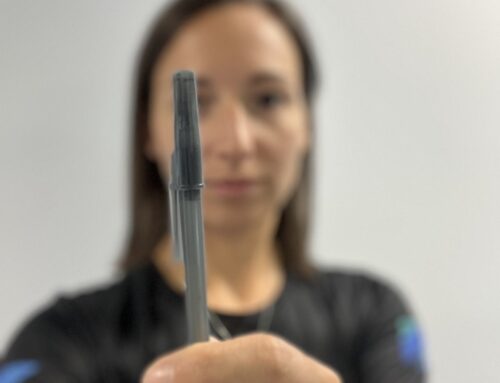
Cervicogenic Dizziness
Can the neck cause dizziness?
Introduction

What is cervicogenic dizziness?
Cervicogenic dizziness is a condition characterized by dizziness that is caused by dysfunction or disorders in the cervical spine (neck) (2). The cervical spine contains highly developed proprioceptive receptors that provide input to the central nervous system, which integrates this information with the visual and vestibular systems to maintain coordinated motion of the head, eyes, neck, and body (2). When there is a mismatch or conflict between the vestibular, visual, and proprioceptive inputs, cervicogenic dizziness can occur (2).
What causes cervicogenic dizziness?
Cervicogenic dizziness can be caused by various factors related to the cervical spine, including:
- Neuro-vascular problems: These include vertebrobasilar insufficiency, which is a condition where there is reduced blood flow to the brainstem and cerebellum, and sympathetic dysfunction, which can cause changes in blood pressure and heart rate (2).
- Spine disease: Cervical degenerative disease, such as osteoarthritis and herniated discs, can cause compression of nerves and blood vessels in the neck, leading to dizziness (2).
- Soft tissue problems caused by or without trauma: Trauma to the neck, such as whiplash injuries, can cause damage to the soft tissues in the neck, including muscles, ligaments, and tendons, leading to cervicogenic dizziness (2). Abnormal posture without trauma can also lead to cervicogenic dizziness (2).
- Suboccipital muscles and forward head posture: Structural and functional changes in the suboccipital muscles, which act as stabilizers and controllers of the head, can induce dizziness (3). Abnormal sensory input caused by forward head posture may also be associated with cervicogenic dizziness (3).
It’s worth noting that the causes of cervicogenic dizziness can be difficult to identify, and many clinicians mention that representative symptoms of cervicogenic dizziness are difficult to distinguish from other diseases (2).
How can a Physiotherapist help someone with cervicogenic dizziness?
A physiotherapist can play a crucial role in helping someone with cervicogenic dizziness. Here are some ways in which a physiotherapist can assist:
- Assessment and Diagnosis: A physiotherapist will conduct a thorough assessment to determine if cervicogenic dizziness is the underlying cause of the symptoms. This may involve evaluating the patient’s medical history, performing physical examinations, and assessing cervical range of motion and posture (4).
- Manual Therapy: Manual therapy techniques, such as mobilization and manipulation of the cervical spine, are commonly used by physiotherapists to treat cervicogenic dizziness (4). These techniques aim to restore normal joint mobility, reduce muscle tension, and improve proprioception in the neck (5). Manual therapy has shown moderate evidence in favor of its use in the treatment of cervicogenic dizziness (4).
- Exercise Therapy: Physiotherapists may prescribe specific exercises to improve neck strength, flexibility, and posture (4). These exercises can help stabilize the cervical spine and improve proprioception, which may alleviate dizziness symptoms.
- Postural Correction: Poor posture, especially forward head posture, can contribute to cervicogenic dizziness (5). Physiotherapists can provide guidance on proper ergonomics and postural correction strategies to reduce strain on the neck and improve symptoms (4).
- Education and Lifestyle Modifications: Physiotherapists can educate patients about cervicogenic dizziness, its causes, and strategies to manage symptoms. They may also provide advice on lifestyle modifications, such as avoiding activities that exacerbate symptoms and incorporating relaxation techniques (4).

Cervicogenic dizziness rehab at WESTPRO Physiotherapy
Physiotherapists at Westpro Physiotherapy are an excellent choice for the assessment and treatment of cervicogenic dizziness for several reasons:
- Expertise: The physiotherapists at Westpro Physiotherapy have extensive knowledge and experience in the assessment and treatment of cervicogenic dizziness. They stay up-to-date with the latest research and treatment techniques to provide the best possible care for their patients.
- Comprehensive Assessment: The physiotherapists at Westpro Physiotherapy conduct a thorough assessment to determine if cervicogenic dizziness is the underlying cause of the symptoms. They use a variety of diagnostic methods, including the cervical torsion test, to accurately diagnose the condition.
- Individualized Treatment: The management of cervicogenic dizziness should be tailored to each individual based on their specific symptoms and needs. The physiotherapists at Westpro Physiotherapy develop personalized treatment plans that may include manual therapy, exercise therapy, postural correction, and lifestyle modifications.
- Evidence-Based Practice: The physiotherapists at Westpro Physiotherapy use evidence-based practice to guide their treatment decisions. They stay up-to-date with the latest research and treatment techniques to provide the best possible care for their patients.

Conclusion
In conclusion, the physiotherapists at Westpro Physiotherapy are an excellent choice for the assessment and treatment of cervicogenic dizziness. They have the expertise, knowledge, and experience to accurately diagnose and effectively treat the condition, using a collaborative and evidence-based approach.
If you have any concerns regarding a concussion, please reach out to us at Westpro Physiotherapy Clinic. Our expert Jack Liney, is always here to help you with your recovery. Online booking is available 24/7 for your convenience. CLICK HERE TO SEE JACK’S SCHEDULE.
Reference list
2, Classification of cervicogenic dizzinesssemanticscholar·1
3, Suboccipital Muscles, Forward Head Posture, and Cervicogenic Dizzinessnih·4
Email us anytime if you still have questions info@westprophysio.comOr book a free 15 minute Consultation with a Physiotherapist to get all your questions answered.







Follow us on Facebook or Instagram for the most up-to-date news.